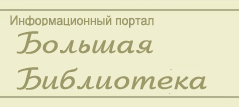Другое : Образование в России /english/
Образование в России /english/
EDUCATION IN RUSSIA
Secondary education is mandatory in Russia. Children start school at the age of 6 and finish at 17 . As a rule, a child attends the school located in the neighbourhood, the one which is the closes to home . However , there in big cities there are also so-called "special" schools , offering more in-depth studies of the major European languages ( English , French, or German), or the advanced courses in physics and mathematics, and children attending one of these may have to commute from home. There are no school buses in Russia.
The first stage of education is elementary school for grades 1 through 4. The second is secondary school for grades 5 through 9 . Upon graduation from secondary school ( which is not the equivalent of having completed their secondary education ) , students are given the choice of either continuing to attend the same school (high school; grades 10 and 11 ), or entering a vocational school or trade school. Both vocational school and trade schools are meant to provide one , long with the certificate of secondary education, with a number of useful skills ( e.g. , those of an electrician, technical, or computer operator ).One attends the former for two years, and the latter for three or four.
Having completed one's secondary education, one can either become part of work force or go on to college ( " institution of higher learning " ). There are universities and so-called "institutes" in Russian . The former stress a more theoretical , fundamental approach to education , while the latter are more practice oriented.
There are no medical schools or departments with in the structure of Russian universities . Future doctors attend medical institutes. There are no degrees in Russian equivalent to those of bachelor's or master's. Students spend approximately five years in college or six in a medical institute.
To be admitted to an institution of higher learning , one has to pass a series of oral and written tests. Grades in the certificate of secondary education are also taken account. Entry to higher education is quite competitive. Some college departments ( philologist, foreign languages-especially English, law, journalism ) have dozens of applicants for one prospective student's position. The same is true of medical and theatre institutes.
Up to the present, neither college students nor schoolchildren have had any say in the selection of courses they had to take. Everyone has studied according to uniform series of guide lines approved by the Ministry of Higher Education . Evidently , this situation is going to change in the near future.
Education in Russian has until recently been free on all levels. College students with good grades were rewarded with a modest stipend . All institutions of higher learning were subsidised by the government . Now that the country is changing to a market-place economy, the system of education is also bound to undergo profound changes . The first private schools , gymnasiums and lycees, have already been founded in Moscow and St. Petersburg , in an attempt to revive the pre-1917 traditions of Russian educational system with its high standards of excellence.
|


